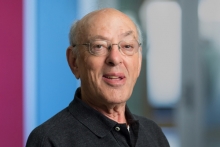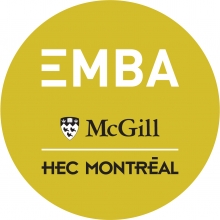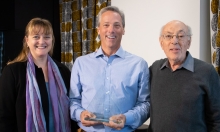Since its publication in 2014, Professor Henry Mintzberg’s book, Rebalancing Society, has been heralded as a handbook for environment and social sustainability by the United Nations and hundreds of universities and organizations across the globe. Recently, principles included in Rebalancing Society were integrated into the Sulitest (Sustainability Literacy Test), a tool promoted by several branches of the United Nations.


According to Professor Henry Mintzberg, the greatest quality a manager can embody is empathy. As liaisons between executive leadership and employee teams, managers must be able to build trust and respect in order to accomplish company goals across a large network of stakeholders.

According to Professor Henry Mintzberg, only 10% of organizational changes are successfully implemented in the workplace. In Lucy Kueng’s book, “Hearts and Minds: Harnessing Leadership, Culture and Talent to Really Go Digital,” Professor Mintzberg joins more than 100 experts across a vast array of disciplines to deliver recommendations for successful leadership, such as remaining grounded in humility and building teams with diverse backgrounds and skillsets.

Based on Professor Henry Mintzberg’s multidisciplinary theories of management, the McGill-HEC Montréal EMBA program has mastered the art and science of empowering business professionals to lead successfully. By bringing together leaders from a wide scope of academic and industry backgrounds, the EMBA program creates a unique space for collaborative problem-solving and offers the flexibility students need to balance coursework with other responsibilities.

In his 2019 book, “Bedtime Stories for Managers,” Professor Henry Mintzberg pointed out a lack of opportunity for managers to come together and discuss progress, growth, and the unique challenges they face in leading teams.

In March, a team of scientists reported that the COVID-19 virus can be transmitted through polluted air particles. Looking at the pandemic through this lens, Professor Henry Mintzberg proposes a strategy for businesses and organizations to minimize risk from transmission through polluted air.

An opinion piece outlining lessons learned from the 2008 financial crisis explores Professor Henry Mintzberg's argument for communityship—the idea that instead of managing companies top-down, managers should start leading center-out, reaching out to the wider ecosystem that surrounds and makes all businesses possible.
The article emphasizes that post-COVID businesses should focus on communityship to support their employees, partners, and affiliates to see them through the current pandemic and any future crises.

In a McGill Alumni webcast, Professor Karl Moore is joined by Professor Henry Mintzberg and his daughter Susan Mintzberg, a PhD candidate at McGill who studies the role of family caregivers in mental healthcare. The three cast light on how we can build better systems and more balanced societies based on lessons learned from COVID-19.

Professor Henry Mintzberg sits down with Le Devoir to discuss lessons learnt during the pandemic, from the surprising intimacy of remote work to the three pillars of a prosperous democracy.

Managing without soul has become an epidemic in society, according to McGill University’s Professor Henry Mintzberg. Many managers these days seem to specialize in killing cultures, at the expense of human engagement. Why do we tolerate this?
This article is brought to you by Delve, the official thought leadership publication of McGill University's Desautels Faculty of Management.

In conversation with The New York Times, Professor Henry Mintzberg considers the implications of working from home. Most surprising to Professor Mintzberg is that very little is lost in the remote setting, with video conferencing strikingly similar to in-person meetings.

Professor Henry Mintzberg, once described by Forbes as “the rebel of management theory”, has published a Declaration of Our Interdependence in collaboration with nine like-minded thinkers. Now with more than 800 signatures, Mintzberg hopes it will inspire the restoration of balance across all sectors of society.

Professor Henry Mintzberg, known for his radical approach to management, sits down with Professor Karl Moore to debunk the lure of the elite leader. Rather than placing leaders on pedestals, Professor Mintzberg suggests they remain on the ground, where they can play an active role in the team.

Professor Henry Mintzberg shares three common factors that he sees in high functioning companies—change, continuity, and community—and how each of these rely on the delicate balancing of traditional business dichotomies.

Professor Alain Pinsonneault recently received the inaugural Henry Mintzberg PhD Teaching and Mentorship Award in recognition of his high-quality teaching and commitment to student progress. He was nominated for the honour by PhD students and alumni.
The award was created in 2018 to recognize Professor Henry Mintzberg’s 50 years of service to McGill.
